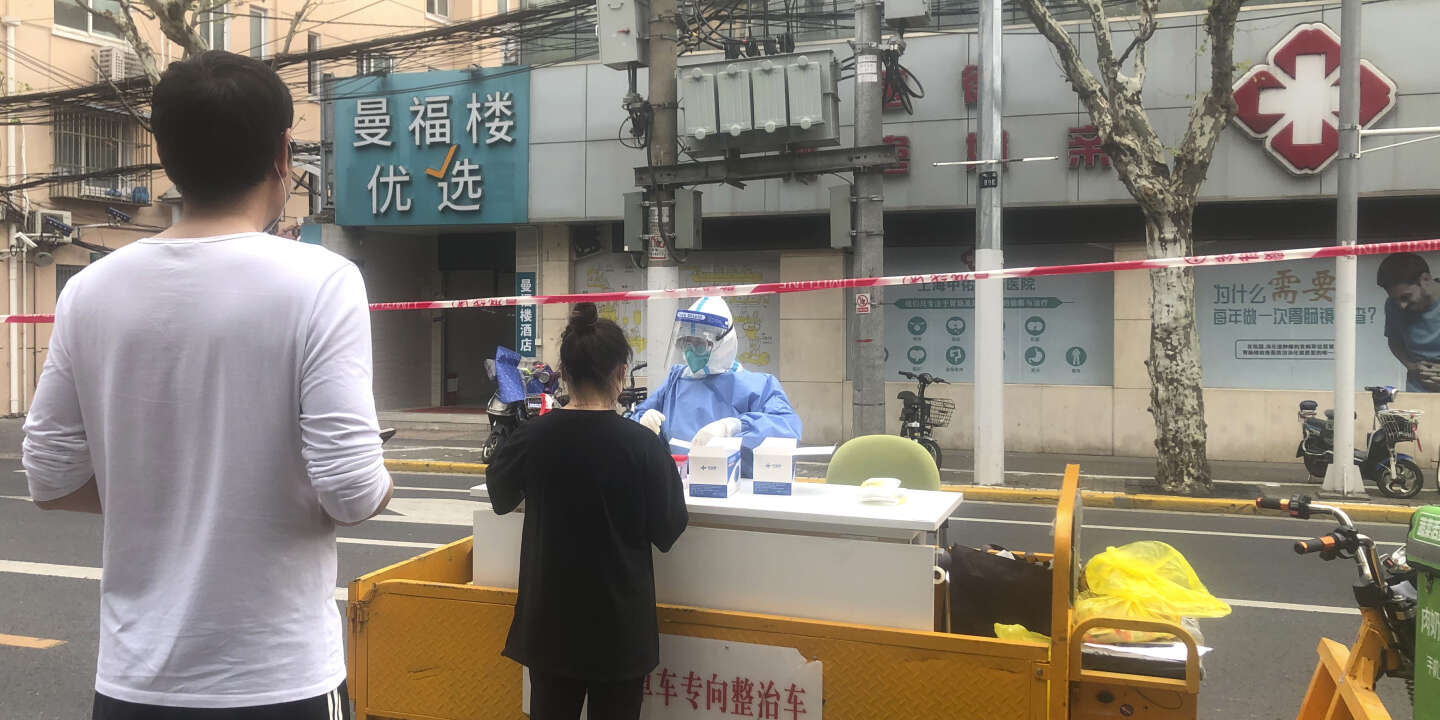Caution: This article contains shocking images.
Jeroen, you were last week for the first time in Butsha, the now well-known suburb of Kiev throughout the world. What did you find there at that moment?
First of all, a number of streets with blackened buildings, almost unrecognizable wrecks of tanks and armored vehicles, and grenade remains in a lunar landscape of craters. We visited the city led by the Ukrainian army with dozens of journalists at the same time. To be honest, it was abrasive and I didn’t feel comfortable with that either. But sometimes you have to do something like that, if that’s the only way to get close.
Boetsja and the surrounding area is known as a wealthy neighborhood and a place where people like to live. Now I spoke to devastated people who had survived the attack about their deceased loved ones, murdered neighbors and the raid by the Russian army through their city.
–
–
The horrific images of Butsha went all over the world. Do we know more about what happened here?
It is clear that civilians were outlawed during the Russian occupation. What was new to me is that the Russians ordered some of the civilians to collect lifeless bodies and bury them at the church. So, on the one hand, the Russian army was also hiding their actions. But the murder rate was just too great for that. At least 300 civilians have been killed here, the mayor said.
People have been shot in front of their homes. Others on their bicycles in the middle of the street. I saw with my own eyes how some victims who were lifted from a mass grave had their hands tied behind their backs, it was really horrific. A local priest told me that several of the bodies he had seen showed a single gunshot wound to the head. It’s too bad for words, and yet you have to find words for it.
–
–
You have been through a lot as a journalist in war zones such as Chechnya and Georgia, but what impression does this make on you?
All these experiences have made me aware of the need to conduct thorough investigations into war crimes. And I have not seen in previous wars that they are so fast with this in Ukraine. That is something that makes me feel positive. It gives me courage that direct investigations are being conducted by local justice and an international team of lawyers, including French.
In Chechnya, the investigation all started much later at the time. Now that official mill has started to turn much faster and a lot of speed is being set. That is very important if you want to convict people for war crimes. This must go to the International Criminal Court as soon as possible.
–
–
At least seven journalists have been killed and 11 have been hit by bullets since the Russian invasion began on February 24, according to Reporters Without Borders (RSF). Are you concerned for your own safety?
Yes. And it should. You should not feel safe in these kinds of areas. Even though I am currently in Kiev where it is now relatively quiet, a few hundred kilometers from the real hard front line. You always keep in mind that a front can move. And also that people in a tense situation sometimes do things that they never thought possible before.
It is possible that Russian troops return and a missile strike cannot be ruled out. You cannot assume 100 percent security. But compare it with a firefighter: he also does not say when a fire is very large that he will not come to extinguish it because it is too dangerous for him. Especially when it comes to human lives, like here, it is a story that always needs to be told.
–
–
You were also in Kiev before the invasion, when the Russian troop build-up around Ukraine had already started. What struck you then?
The impressive resistance you see now began to manifest itself well before the February 24 invasion. The war in Ukraine has, of course, been going on since 2014. That is something to be emphasized, because it already prepared the people here quite well for a possible Russian invasion. And also very combative. They all thought: give away a piece of Ukraine like Crimea, so we won’t do that again.
You have recently been to Lviv, a historic city about 80 kilometers from the border with Poland. What did you see there?
Lots of chaotic and heartbreaking scenes of people trying to get out of Ukraine. But there too a lot of militancy of those left behind who armed themselves to their teeth to defend their city and country.
–
–
Before the war, you visited the now destroyed city of Mariupol and various places in eastern Ukraine, where fierce fighting is now going on. What does the coming period look like for you?
I am not looking further than one day ahead at this point. Initially, it was not the plan to go to Kiev, but since the front has shifted to the east, the possibility was suddenly there.
Transport through Ukraine is complicated. On the road you go from checkpoint to checkpoint on many parts. That is why we chose to travel by train last week. Unbelievable, they almost always drive, war or no war. There is also a curfew and the air raid siren go off every night. You then have to wait until the weather is safe and take all kinds of precautions. That’s why we make that consideration every day: do we stay here or do we go somewhere else. You must always be alert.
–
–


